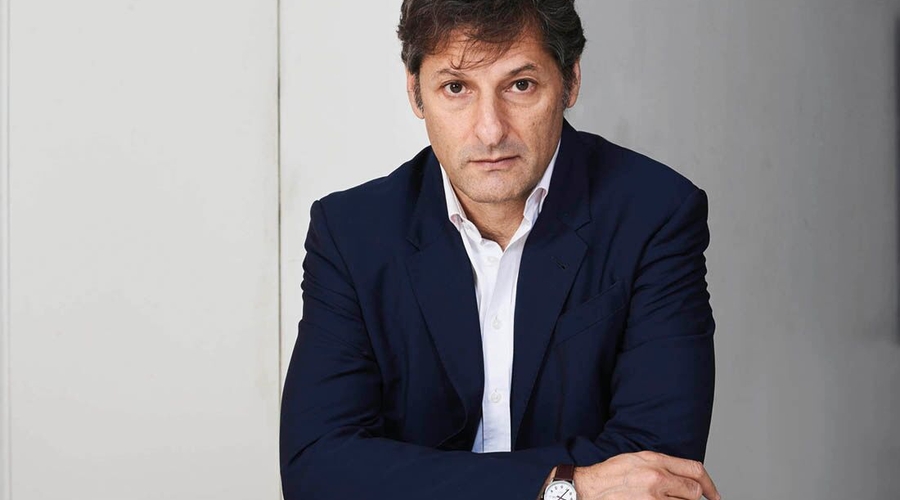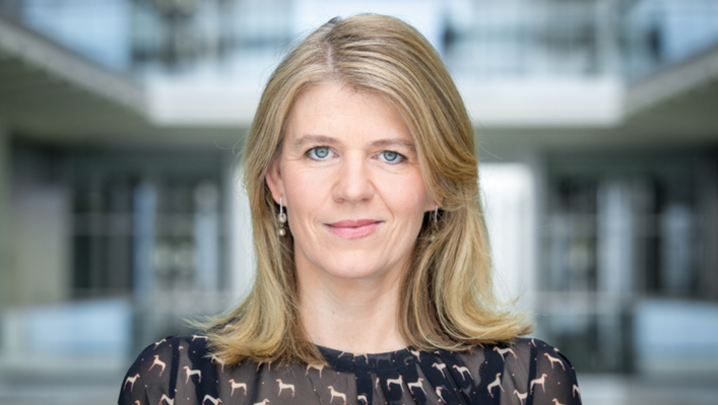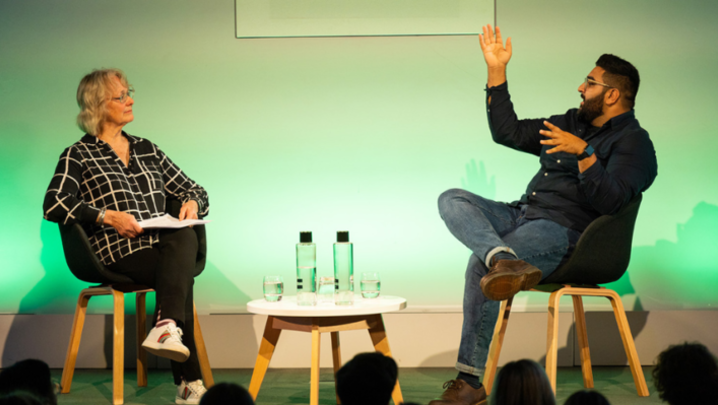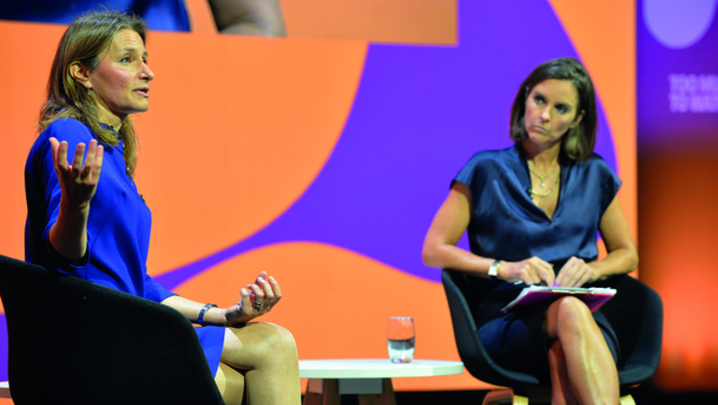Channel 4's new director of programmes, Ian Katz, is well equipped to bring a new vitality to the broadcaster, says Maggie Brown.
Ian Katz starts his career at Channel 4 on 8 January buoyed up with the confidence that comes from defeating far more experienced TV rivals for a plum job. He convinced the new Chief Executive, Alex Mahon, that he possesses the ideas, drive and maverick light touch to sustain the broadcaster’s creative crackle.
As an outsider, the new director of programmes, who is 50 in February, argued that Channel 4 must, above all else, be distinctive. He wants more edgy disruption brought into the schedules, which, arguably, were polished to something of a monotone by the powerful influence of his predecessor, Jay Hunt.
This is not so different from Mark Thompson’s mantra of “Do it first; make trouble; inspire change”, which he promulgated when he took over Channel 4 in 2002. The challenge is, of course, how to do it.
The shock over Katz’s lack of broadcasting experience that engulfed the company when his appointment was announced on 31 October has been replaced by detached pragmatism. “That’s a matter for Alex Mahon,” snaps one senior Channel 4 commissioner, when approached for comment.
But there is still concern that powerful independent producers may opportunistically see him as a blank sheet of paper to inscribe their interests upon. The size of his annual budget for original programmes – even in an ad recession – of some £450m to £500m inevitably engenders respect and fuels the hope that there will be new favourites.
“I’m really excited about the Channel 4 opportunities opening up for us,” says Jamie Isaacs, who heads Avalon Television’s factual division.
A clue to Katz’s remarkable elevation from his previous role editing Newsnight can be found in his track record as a former editor of The Guardian’s tabloid supplement, G2. From 1998 to 2006, he ran a mischievous publication and delighted in the juxtaposition of high and low culture.
G2 embraced short, quick-fire regulars such as Pass Notes, serious long reads and introduced a range of prominent new columnists, including the great Charlie Brooker. At that time, Katz was viewed by the paper’s old guard as too tabloid.
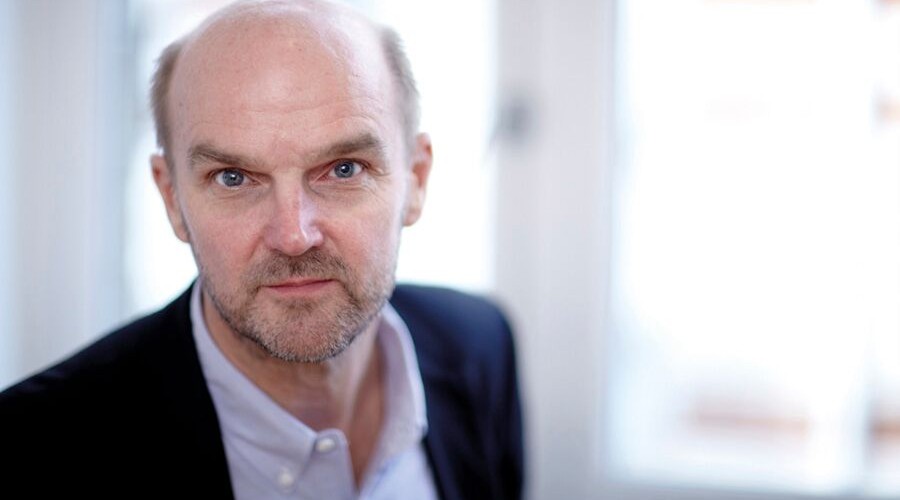
Stephen Lambert, CEO of Studio Lambert and a friend who encouraged him in his candidacy, says he will bring that G2 “fizz and energy” to Channel 4. But adds that his friend will also need to pay attention to 9:00pm returning series, which would include Lambert’s own production Gogglebox.
Daily newspapers tend to hone buzzy characters; Katz, after 23 years of Guardian deadlines, is a fast worker. Within two weeks of his appointment, he had held introductory meetings with Channel 4 commissioning chiefs and department heads, and placed obligatory calls to key talent, including Jon Snow, who is emphatically back in favour.
Fresh from one such conversation, Kelly Webb-Lamb, Channel 4’s head of factual entertainment, told the Televisual Factual Festival on 14 November: “I feel really upbeat and positive about it. Having someone coming in who doesn’t have the received wisdom of what works for factual entertainment will be a creative challenge.
“Already, [he has] some questions. That’s where brilliant creativity comes from. I feel that it is genuinely an opportunity to rethink the way we make things, what we make things about and who we make them for.”
This suggests a dialing down of celebrity factual entertainment, or, at least, a more careful use of such shows. Expect, too, a return to shorter series, more single documentaries and fewer formatted shows. Nick Mirsky, Channel 4’s head of documentaries, who was speaking at the same conference as Lamb, talked up a quirky, three-part comedy-documentary, Inside the EU.
Another shift will flow from Katz’s stated intention to run Channel 4 commissioning in a more devolved way. During his predecessor’s reign, some referred to Hunt as “the Monarch” and feared her piercing intelligence. Her “diktats” included a recent ban on more dating shows.
The new director of programmes knows that he has gaps in his knowledge. Even the fastest of learners would struggle to master the computerised programme schedule and the detail of fulfilling remit quota targets. He will need a strong and experienced team around him until he grasps all the arts of television.
His main job is to have and select ideas. He is open to the prospect that Channel 4’s existing commissioners may already be ideas mines. So it is likely that he can avoid the wholesale changes of the 2010-13 period. Then, almost every department head outside of news and current affairs changed.
Hunt had the experience to know when to strip a series across successive days (as with The State) because she had done this at BBC One. She also knew how to analyse a pilot and adjust it for success. Remember, Gogglebox was not an overnight sensation.
It was Hunt who alighted on Noel Fielding for The Great British Bake Off. Her successor will have to rule as primus inter pares. He promises more space for differences of tone and taste.
On his two-month gardening leave from Newsnight, Katz has been on his best behaviour, avoiding blunders such as his tweet after joining Newsnight in 2013 – when he lambasted stock political interviews and called Labour MP Rachel Reeves “boring, snoring”.
An unsuccessful bid to land the Guardian editorship in 2014 made him look slippery. But his lengthy experience of news and current affairs – he rose to deputy editor of the Guardian – is an essential part of his skillset.
Prash Naik, the outgoing head of legal affairs at Channel 4, emphasises that, in a crisis, the director of programmes must serve as a shield to protect the chief executive (ultimately, the editor-in-chief) and the broadcaster’s reputation.
As a current affairs expert, the programme chief knows the station needs more raw, live debate, partly to reflect Brexit and the Government’s predicament. He admires Channel 4 News, despite its recent gaffes. One swift way to make an impact at the broadcaster (given that it will take two years for his first commissions to come through), would be to run more live debate and satire.
The channel-defining cult comedy-drama Black Mirror was lost to Netflix in 2015. Another cancelled favourite of Katz’s is the East End gang drama Top Boy, which is being revived by Netflix.
Humans, soon returning for its third series, is another show that gets a big tick from him. The broadcaster has been concerned that top producers will pick Netflix over Channel 4, but it has been assured that they know the value of working for a linear broadcaster.
New comedy acts are needed. Entertainment is in the doldrums, beyond The Last Leg. Alan Carr: Chatty Man is lacking a vehicle.
And then there is relocation. Along with Mahon, the new programme director has committed to making meaningful changes, not token ones. By which, he means having commissioners located in regional production centres, rather than a couple of hundred back-office jobs leaving London.
New comedy acts are needed. Entertainment is in the doldrums
Katz, born in South Africa, is a North Londoner, who lives in Islington and attended University College School and New College, Oxford. His wife, Justine Roberts, founded and runs Mumsnet. They have four children, so knows from his own experience that teenagers rarely, if ever, watch scheduled TV.
In common with opinion leaders and politicians, he was shaken by the Brexit vote but regards it as evidence that news organisations and many politicians were out of touch.
The new programme director will focus on driving forward the All4 digital platform, with its 16 million registered users (though not all are using it). Offering catch-up and archived programmes, and working towards personalised advertising, it is the major legacy of David Abraham’s regime and key to retaining Channel 4’s youth and young-adult audience. The launch of Walter Presents, which appeals to more mature viewers, has underscored its potential as a host.
As a newspaper executive, Ian Katz wrestled with the digital revolution a decade before broadcasting was hit by similar disruption. He ran the Guardian’s internet site for a while.
So he starts with confidence. But the moment he begins rejecting proposals from independent producers, the honeymoon will be over.
“Taking that job is like being a goalie,” quipped Avalon’s Jamie Isaacs. “You are going to be hit – it goes with the job.”
The challenges facing Ian Katz
The Great British Bake Off has given a boost to Channel 4, bringing it large audiences for the first time since it possessed Big Brother. But ratings still swing wildly. Gogglebox (launched in 2013) is the broadcaster’s most consistently successful and profitable strand.
Channel 4 has seen the rights to horse racing and Formula One whisked away, after working hard on their presentation. It needs replacement sports, especially new, youth-skewing ones. And it also needs programmes that impress the Channel 4 brand on the young. E4 is under pressure from ITV2.
Channel 4 is hunting for fresh 9:00pm programmes to replace – and reduce dependency on – fixed-rig shows such as One Born Every Minute (launched in 2010) and 24 Hours in A&E (2011).
These are commissioned in long runs and rely on access agreements. Arguably, they have edged out fresh, risk-taking programmes, but they have buttressed audience share and, therefore, ad income.
Established 8:00pm features, including long-running property shows, form the backbone of profitable More4. Ian Katz will have to address this tension, trading reliability for risks.
Survival formats, including The Island, are out of favour. Eden flopped and Mutiny overspent.
Drama matters. However, Electric Dreams, the series of co-produced Philip K Dick adaptations, failed to ignite viewers.
Grayson Perry is a treasure, but arts, music, culture and authored history have been neglected. The broadcaster has sought programmes on Muslim issues, though it spent nothing on religion, per se, last year.

